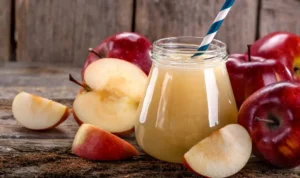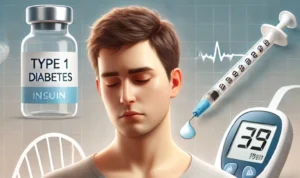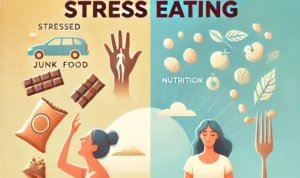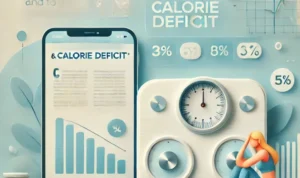Table of Contents
ToggleVitamin D also known as sunshine vitamin is produced in the body when the body is exposed to sunlight. the cholesterol acts as precursor for production of vitamin D, as the sunlight hits the skin, the cholesterol present in body is converted to Vitamin D3 by a series of reactions. The point here is that apart from production by exposure to sunlight, what are the other sources by which the body can get Vitamin D.
Yes, you guessed it right, ‘food’ is the main source of vitamin D. Our body requires vitamin D in adequate amounts to perform vital functions like regulating the absorption of calcium in bones which helps in strong bones and boosting immunity.
Vitamin D; a Fat-soluble Vitamin
Vitamin D is a fat-soluble vitamin which means it needs fats to get digested and absorbed. Vitamin D is extremely important for your normal functioning of body and overall improved quality of life. Your body needs vitamin D for your blood cells, immune cells, defense mechanism, for skin, nails, hair, and most importantly for calcium to get absorbed.
What Happens When You Are Not Taking Enough Vitamin D?
When the body needs for vitamin D are not met by sunlight exposure and diet together, then your body shows symptoms like lethargy, tiredness, muscle and joint pain, inability to concentrate and do everyday chores, bone pain, hair loss (excessive), depression, sadness, anxiety and weight gain.
How Much Vitamin D Do You Need?
- Babies up to 1 year need 8.5–10 mcg (400 IU)
- 1–70 years individuals need 600 IU (including pregnant or breastfeeding women)
- People over age 70 years require 800 IU
Sources of Vitamin D
Vitamin D is mainly found in foods like salmon (fatty fish), mushrooms, fruits like oranges, egg yolks, red meat, beef liver, and fortified foods.
Fruits rich in vitamin D are following:
- Oranges
- Bananas
- Dried figs
- Prunes
- Kiwi
- Raisins
Vegetables rich in vitamin D are following:
- Spinach
- Kale
- Okra
- Collard green
- Mushrooms
Why Vitamin D is Essential?
Vitamin D is essential for a number of functions it performs in the human body. They include:
1. Calcium absorption in body
Calcium is absorbed in the body with the aid of vitamin D. Calcium alone cannot do any wonder to bones unless vitamin D is there to help in its absorption in bone. Without vitamin D only 10 to 15 percent calcium is absorbed. So to ensure healthy bones, vitamin D needs to be supplemented.
2. Impact on immune system
Vitamin D plays a vital role in innate and adaptive immunity. It helps in the defense mechanism of the body. Vitamin D is known to prevent the development of autoimmune diseases like inflammatory bowel disease (IBD).
3. Vitamin D and mental health
Vitamin D plays a vital role in managing your mood. Anxiety, depression, and stress all are linked to vitamin D deficiency because vitamin D leads to improved secretion of serotonin and melatonin. Serotonin is a happy hormone which leads to a sense of satisfaction and contentment which further leads to calmness.
4. Reduced risk of metabolic disorders
Vitamin D is strongly correlated to reduced risk of metabolic disorders. vitamin D deficiency leads to insulin resistance so supplementing vitamin D can lead to insulin sensitivity in muscles.
Top 10 Foods Rich in Vitamin D
1. Fatty fish, such as salmon, trout, and tuna
Salmon contains about 16 mcg Vitamin D per 100g which means it is a rich source of it. Eating salmon or fatty fish twice a week is recommended for clear skin, joint motility, and improved heart function. It helps reduce cholesterol and ensure brain function.
2. Beef liver
Beef liver is a great source of vitamin D if you are a non-vegetarian. Beef contains essential amino acids along with vitamin D and B12 which are the main nutrients for brain health and development in adults as well as infants. Also, beef contains good amounts of zinc, which helps in growth and maintenance of body.
3. Egg yolk
Egg yolk contains 218 IU Vitamin D per 100 grams making it a vital source of vitamin D. Egg yolks are highly recommended for bone health, immune function, muscle growth and overall health.
4. Pineapple
Pineapple is among those fruits which are high in vitamin D content. They aid in maintaining immunity and preventing metabolic diseases. Metabolic diseases are well controlled when we ensure weight loss. Pineapple can be used in various ways like pineapple water and infused water to have on your weight loss journey.
5. Mushrooms
Mushrooms exposed to regular sunlight are excellent source of vitamin D containing 136 IU per 100 grams. They have DV of 22 which means the vitamin D present in mushroom is readily available for absorption.
6. Cod liver oil
Cod liver oil derived from fatty fish cod, is an essential source of vitamin D. Cod liver oil is supplemented in the market as vitamin D and omega 3 source and is highly beneficial for diabetes, obesity, heart health and hypercholesterolemia.
7. Olive oil
Olive oil being a main source of polyunsaturated fatty acids aids in weight loss, reversing diabetes and hypertension. It is advised to take extra virgin olive oil before bed for number health benefits.
8. Cow’s milk and yogurt (fortified)
Cow milk or yogurt are rich sources of vitamin D which help maintain strong bones and teeth. Along with calcium, vitamin D aids in collagen formation which leads to healthy bones. Additionally, cow milk is a highly dependable source of vitamin D for infants as they get most of their nutrition through it. Furthermore, it helps prevent autoimmune disease, heart failure and diabetes in adults.
9. Plant-based beverages, such as almond, soy, or oat milk (fortified)
Plant based sources of vitamin D include almonds, soy and oats and all the fermented products made from them. These include soy milk, almond milk, oat milk, yogurt and cheese. Furthermore, high-protein vegan snacks can also be used for people who are vegetarians but are vitamin D deficient.
10. Orange juice/Oranges
Oranges themselves are rich source of vitamin D, they contain around 100IU of vitamin D per 100g. They can be consumed raw, or fortified orange juices are also available these days in market which come with additional dose of vitamin D to make up the deficiency. Oranges boost immune health and have effective antioxidant properties. Additionally, they are rich in vitamin C which makes them a super food.
CONCLUSION
So this sunshine vitamin is extremely important to brighten up your lives. You need it for almost every function of your body including bone health, immunity, radical scavenging, mental health and preventing metabolic disorders. So vitamin D intake through dietary sources and through supplements if needed, is highly essential for overall improved quality of life.






